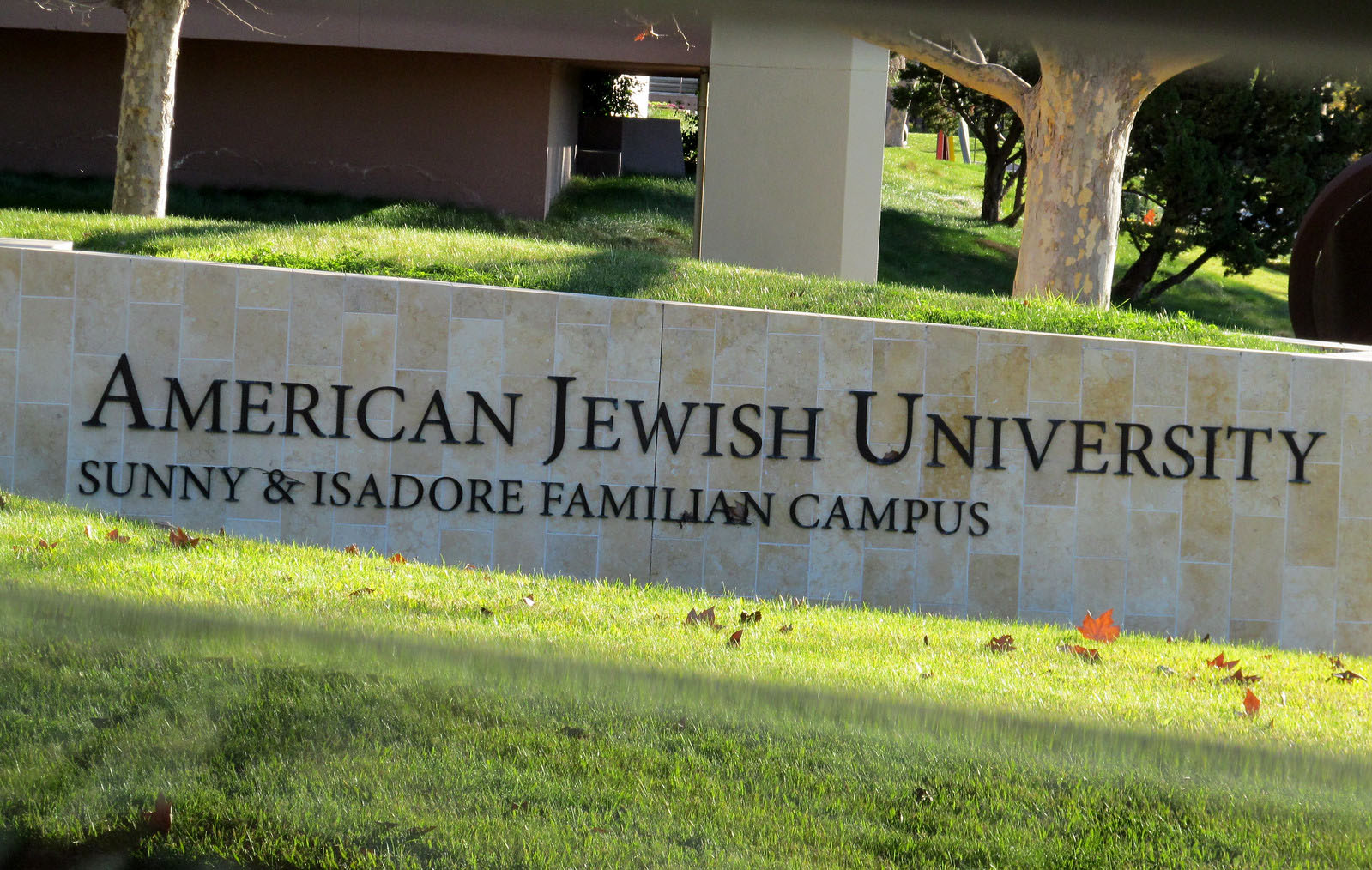 rocor/Flickr/Attribution-NonCommercial 2.0 Generic
rocor/Flickr/Attribution-NonCommercial 2.0 Generic The biggest story in Jewish LA is the news that the sale of the American Jewish University (AJU) campus to an international school will not go through.
Before discussing future visions for the space, it’s helpful to get a sense of why the deal failed to get neighborhood support.
The prospective buyer was a privately owned company called Education First (EF), a for-profit, language study abroad program that planned to change the use of the University to a year-long boarding school for international students who are enrolling to come to California to learn English.
In an April email prior to a neighborhood meeting, Ameet Keny, President of the Casiano Estates Home Owners Association (HOA), summarized the reasons for the group’s opposition:
“The fact that the company is for-profit changes the use of the campus as their goal will be to enroll and house as many students as possible. Currently, the Conditional Use Permit (which was issued in 1966, prior to the construction of any of our homes and prior to the opening of nearly every school along the Mulholland Corridor) for the AJU allows for up to 200 students to be living on campus.
“EF plans to increase that to 700 students living on campus year-round. They also plan on having another 200 students living with host families be shuttled to the campus daily between the months of Sept-June and 500 students be shuttled to the campus daily during the summer months. Incidentally, all 1200 students partaking in EF’s summer camp (700 living on campus + 500 being shuttled in daily) will be between the ages of 13-18. This is a major change and intensification of use of the campus.
“For these reasons and many more (fire safety/evacuation, traffic/congestion, wildlife concerns, impact on power, sanitation, parking etc.), the homeowners are opposed to the proposal set forth.”
It’s clear that in terms of getting neighborhood support, this was always going to be a tough sell, so no one should be shocked that it didn’t go through.
But beyond the specific facts of the breakdown, two key points have emerged: One, any future buyer will need to work very closely with the HOA to get their support, and two, as I wrote earlier, LA Jewry now has a second chance to keep the campus in the community.
The big question: Will Milken Community Schools renew their interest and make another offer? I’ve heard that their interest has cooled. I’ve also heard that the real estate market has softened in the months since AJU made its conditional deal with EF.
In other words, it’s possible that AJU won’t find a buyer that meets its price, and will face the prospect of going back to square one with the daunting question: What can AJU do with the campus?
Instead of seeing that option as a defeat, the AJU can see it as an opportunity.
The AJU now has a chance to reimagine the campus for the new century and for the needs of a changing Jewish world. We’re still recovering from the biggest global disaster of our time—a pandemic that took more than 5 million lives and shut down much of the world for two years. The Jewish community is hardly immune from the aftershocks. We’ve never been more physically isolated. Lured by the online conveniences of Zoom, Amazon, Postmates and Netflix, we’ve never been more homebound.
What we need now are physical spaces where we can gather in person. AJU can look at its Mulholland campus not as a giant burden but as a communal garden. What kind of creative, engaging spaces and events can it create that will get the Jews of LA to come together and reconnect?
What we need now are physical spaces where we can gather in person. AJU can look at its Mulholland campus not as a giant burden but as a communal garden.
A reimagining of AJU is hardly the only option. A whole other direction, which several of our readers have brought up, is senior housing. Since I asked readers for ideas, I received this interesting thought today from Rabbi Laura Geller:
“If the campus can be rebuilt as housing it should be inter-generational. Some version of a Continuing Care Community with pods for millennials with lower rents and smaller units for families with younger kids in exchange for interaction with the older adults.
“Or intentional co-housing, with common areas for laundry, library, craft studio, space for prayer etc. Examples of this kind of mixed housing are all over the country, often connected to universities. We are the most age segregated society in the world now and so much data suggest that all of us, younger and older, benefit through inter-generational connections.
“And the Mikvah should remain. It matters so much, especially to the non-Orthodox community which depends on it for all kinds of new ritual.”
A whole other direction, which several of our readers have brought up, is senior housing.
We will share more ideas as they come.
LA Jewry is now in the process of a communal conversation over the future of a magnificent space in which every member of our community has a stake. In addition to board members, we also need the voice of community members.
Whether the future will be shaped by Milken Community Schools, AJU, Rabbi Geller’s idea or as-yet unformed groups or ideas, the venerable Jewish campus on Mulholland Drive will be a defining space for LA Jewry for the next century.
Shabbat shalom.






















 More news and opinions than at a Shabbat dinner, right in your inbox.
More news and opinions than at a Shabbat dinner, right in your inbox.